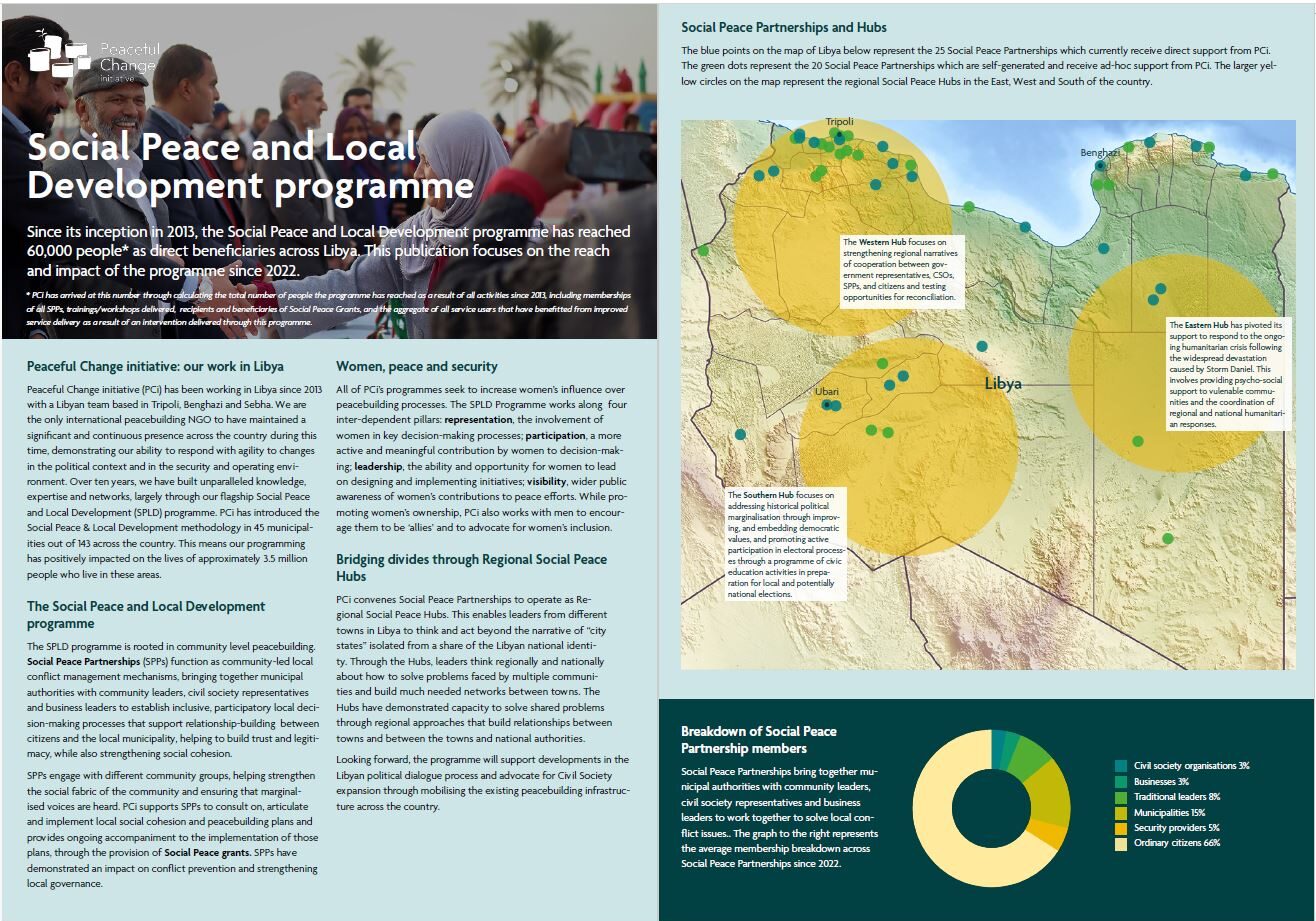
This publication showcases the impact and reach of our Social Peace and Local Development programme since 2022. The report highlights key results the programme has achieved, including the total number of project participants supported, our ongoing work on Women, Peace and Security, the impact of regional Social Peace Hubs, and the geographic reach of the project across Libya’s political divides.
The Social Peace and Local Development programme is rooted in community level peacebuilding. Social Peace Partnerships function as community-led local conflict management mechanisms. They bring together municipal authorities with community leaders, civil society representatives and business leaders to establish inclusive, participatory local decision-making processes. These support relationship-building between citizens and the local municipality, helping to build trust and legitimacy, while also strengthening social cohesion. Social Peace Partnerships have demonstrated an impact on conflict prevention and strengthening local governance.
PCi also convenes Social Peace Partnerships to operate as Regional Social Peace Hubs. This enables leaders from different towns in Libya to think and act beyond the narrative of “city states” isolated from a share of the Libyan national identity. Through the Hubs, leaders think regionally and nationally about how to solve problems faced by multiple communities and build much needed networks between towns. The Hubs have demonstrated capacity to solve shared problems through regional approaches that build relationships between towns and between the towns and national authorities.
Since the inception of the programme in 2013, PCi has introduced the Social Peace and Local Development methodology in 45 municipalities out of 143 across Libya. This means our programming has positively impacted on the lives of approximately 3.5 million people who live in these areas. Looking forward, the programme will support developments in the Libyan political dialogue process and advocate for Civil Society expansion through mobilising the existing peacebuilding infrastructure across the country.
Read the impact report now:
